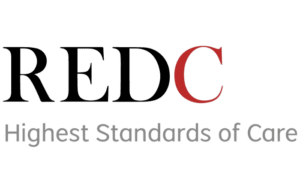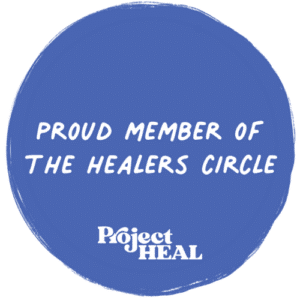Anorexia nervosa is a severe eating disorder marked by restrictive food intake, intense fear of weight gain, and distorted body image, often leading to serious health complications and increased mortality risk.
Treatment for anorexia nervosa at Aster Springs
At Aster Springs, we provide evidence-based, specialized treatment for anorexia nervosa, tailoring expert-level care to each client’s needs. Our comprehensive approach includes individual and family therapy, nutritional counseling, medical monitoring, and trauma-informed support to promote lasting recovery. Anorexia nervosa has the highest health risks of any mental health disorder, with studies estimating lifetime suicide attempts in 3% to 29.7% of those affected (APA). Early intervention and expert care significantly improve recovery outcomes.
About anorexia
- Anorexia involves attitudes and behaviors surrounding weight, food, and body image that can become all-consuming, negatively impacting daily life and physical health.
- An estimated 9% of the US population, or 28.8 million Americans, will develop an eating disorder in their lifetime, according to the National Eating Disorders Association (NEDA).
- While often associated with adolescence, anorexia can develop at any age or stage of life and is caused by a combination of biological, psychological, and sociocultural factors.
Anorexia nervosa has the highest mortality rate of any psychiatric disorder, with approximately 5% of those suffering dying within four years of diagnosis.
FAQs
Anorexia
What is anorexia nervosa?
Anorexia nervosa is a complex, multifaceted eating disorder characterized by an intense fear of gaining weight and a distorted body image, often leading to restrictive eating, excessive exercise, or both. Despite being underweight or malnourished, individuals with anorexia frequently perceive themselves as overweight. While it often begins during adolescence, anorexia can affect individuals of any age or background.
Anorexia is not just about food — it’s deeply intertwined with emotional, psychological, and social factors. The disorder often leads to severe consequences such as malnutrition, organ damage, and an increased risk of suicide. It is commonly linked with perfectionism, anxiety, and control issues, which contribute to the persistence of the disorder. Additionally, anorexia often co-occurs with other mental health conditions, such as depression and obsessive-compulsive behaviors, making it a complex and challenging disorder to treat.
What are the signs + symptoms of anorexia nervosa?
Anorexia nervosa symptoms vary based on the length and severity of the disorder but may include the following:
- Weight loss (significant or sudden)
- Preoccupation with weight, body, food, calories, fat grams, exercise, and/or dieting
- Refusal to eat certain foods or food groups
- Complaints of constipation, abdominal pain
- Cold intolerance, lethargy, and/or excess energy
- Distorted self-image
- Expressed anxiety about gaining weight or being “fat”
- Denial of hunger
- Development of food rituals
- Avoidance of meals and other situations involving food
- Having an excessive, rigid exercise regimen
- Withdrawal from friends, family, and/or activities
- Having concerns about eating in public
- Limited insight into and/or denial of the aforementioned unhealthy behavioral or cognitive patterns
- Post-puberty loss of menstrual period
- Dental issues, such as enamel erosion, cavities, and tooth sensitivity
What are the health dangers of anorexia?
These medical issues are a sign that it’s time to seek professional help:
- Slow heart rate and low blood pressure, which increases the risk of heart failure
- Reduction of bone density, which increases the risk for osteoporosis/osteopenia
- Muscle loss and weakness
- Dehydration, which can result in kidney failure
- Fainting, fatigue, overall weakness
- Dry hair and skin, hair loss
- Growth of a downy layer of hair (lanugo) all over the body to provide warmth
- Development of food rituals
- Avoidance of meals and other situations involving food
- Having an excessive, rigid exercise regimen
- Withdrawal from friends, family, and/or activities
- Having concerns about eating in public
- Limited insight into and/or denial of the aforementioned unhealthy behavioral or cognitive patterns
- Post-puberty loss of menstrual period
- Dental issues, such as enamel erosion, cavities, and tooth sensitivity
Our Treatment Approach
At Aster Springs, we address the underlying issues and experiences contributing to eating disorders while challenging the thoughts and behaviors that stand in the way of lasting recovery.
Levels of Care
Comprehensive treatment options for every stage of eating disorder recovery
Anorexia Resources
Click the links below to access educational resources on anorexia nervosa and learn more about treatment, recovery, and support.
Take the next step at Aster Springs.
Whether you’re seeking treatment for the first time or returning after previous care, the team at Aster Springs is here to help you navigate this stage in your recovery journey.
Your privacy is our priority. All communication is completely confidential.








